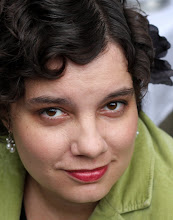I had difficulty articulating what I find fascinating in the story. I guess it reminds me of an article from the Wall Street Journal about Japanese cancer refugees. A cancer refugee is someone who has been denied health care because it costs the Japanese government too much money to treat that person. Japan has basic universal health care for all citizens. (As an aside, 45 million Americans live without health insurance.)
The Japanese government has decided that the policy of universal health care for many is more important than the increased cost of lengthening the lives of some Japanese.
(Also as an aside, until recently, doctors would not tell patients their diagnosis. Patients would just do whatever the doctor ordered.)
I suppose The Lottery epitomizes the tyranny of choosing the many over the individual. It is not stated in the story, but I felt like the town (or towns) was doing this to keep the populations low.
I went on to read, at Wikipedia, that when the story was first published in The New Yorker it caused quite a stir. Jackson received hundreds of pieces of hate mail about the story.
This viceral response to the story is also intriguing. Why did these readers respond so negatively? I was definitely upset by the story. Brent felt that the story got the descriptions and suspense down, but lacked further import.
One critique of the story I found by Peter Kosenko (from the New Orleans Review, Spring 1985) is also quite interesting:
- Though it is arguable that the "primary themes are scapegoating, man's inherent evil, and the destructive nature of observing ancient, outdated rituals" this is a common misconception. The actual theme of the short story is that man creates philosophical existences that he is unable to fulfill. This is shown through Tessie Hutchinson. Throughout the story she is joking around about the lottery and carrying on like all the other townspeople, but as soon as her family name is chosen from the black box her perspective takes quite the turn. Suddenly this "isn't fair" when in all reality a lottery is by definition the most fair method of chance.
So is the story just about the lottery of life? Most people will do ok but some will end up with horrible lives (or deaths as it were.) Is it more fair that all people in Japan have basic health care or that in the United States we all have the potential to be saved as Lance Armstrong was by an individually created drug?
For me I think the reality I want to live with is a society where everyone is taken care of to the utmost of our ability. I want life to be valued highly, perhaps even above all else.


No comments:
Post a Comment